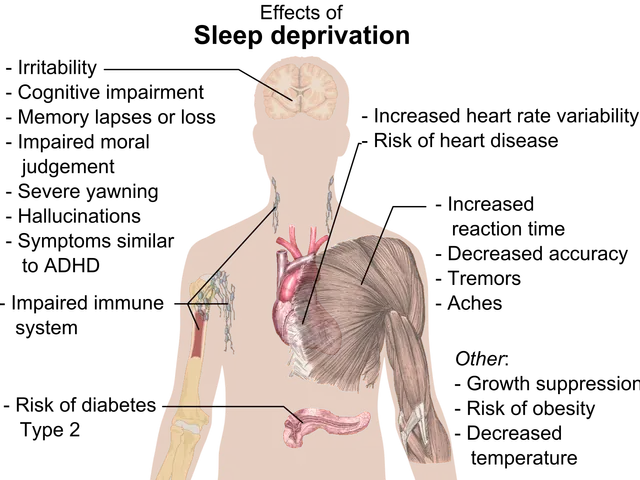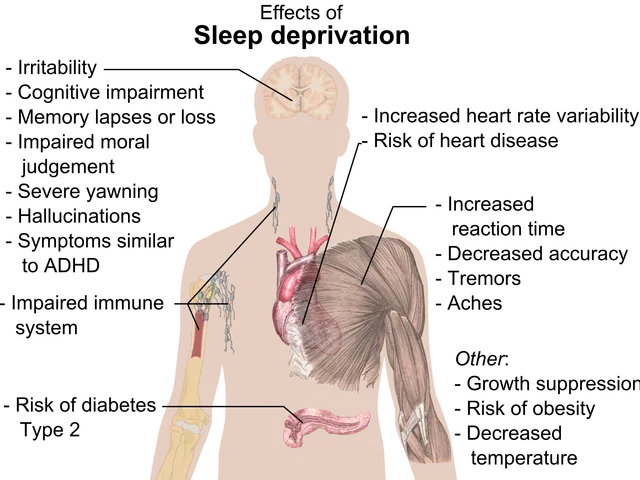Poor Sleep Linked to Accelerated Brain Aging, Higher Mortality Risk
A new study reveals a link between poor sleep health and accelerated brain aging. The research, published in the journal 'Neurology', suggests that chronic poor sleep can cause the brain to age faster, creating a 'brain-age gap'. This gap is associated with increased mortality and a higher risk of cognitive decline.
The study found that higher levels of inflammatory markers such as C-reactive protein (CRP), interleukin-6 (IL-6), and tumor necrosis factor-alpha (TNF-α) were associated with a greater gap between chronological age and brain age. This indicates that systemic inflammation, which can be exacerbated by poor sleep, plays a significant role in brain aging.
Poor sleep health can lead to a higher brain age gap, contributing to about 10% of cases where poor sleep contributes to brain aging. This is concerning because a higher brain age gap is linked to increased mortality and a greater risk of cognitive decline. Getting screened for obstructive sleep apnea, which can improve sleep duration, reduce snoring, and improve insomnia, may help mitigate these risks.
Maintaining good sleep health is crucial for overall well-being and reducing the risk of age-related conditions like stroke and heart failure. The study underscores the importance of obtaining 7 to 8 hours of sleep per night and maintaining a consistent sleep routine. Further research is needed to fully understand the relationship between sleep, inflammation, and brain aging, but the current findings highlight the potential benefits of prioritizing sleep health.






